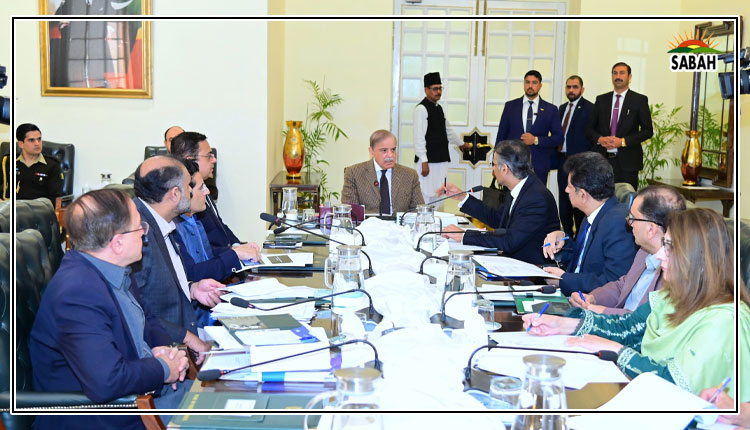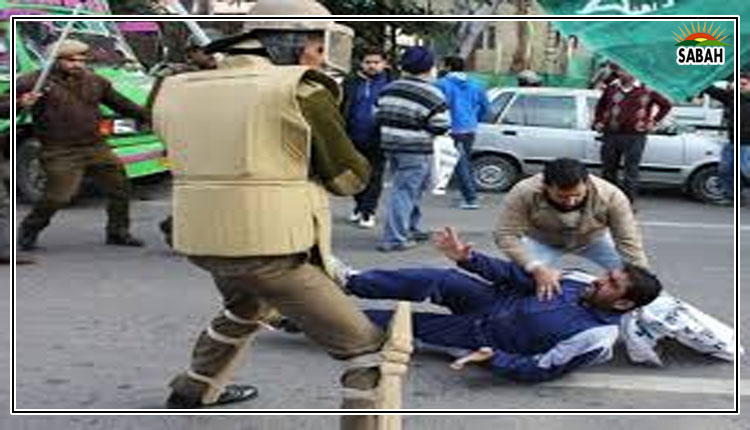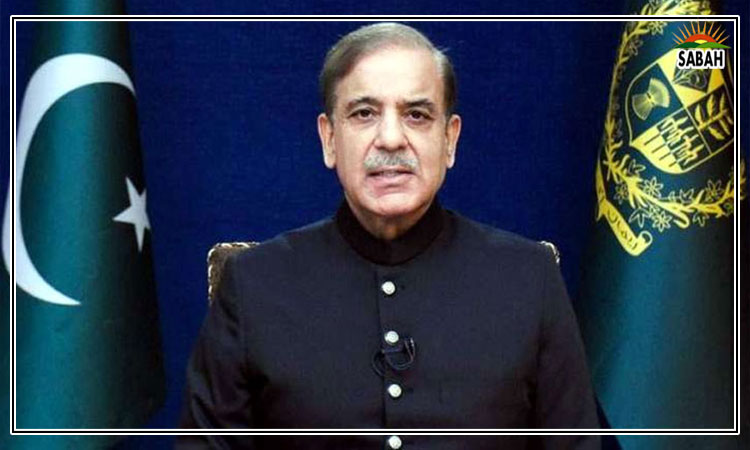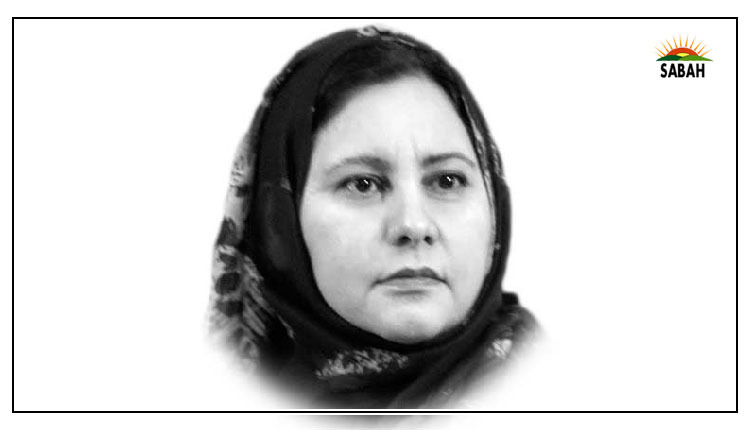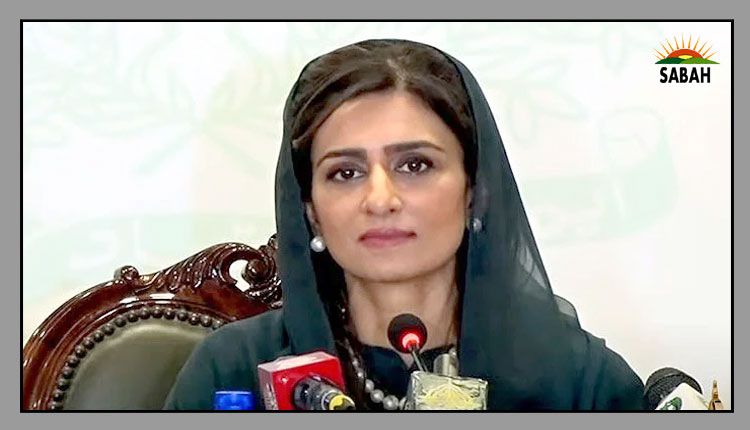We should not start celebrations as only processes of exiting Pakistan from FATF ‘grey list’ have been started: Hina Rabbani Khar
ISLAMABAD, June 18 (SABAH): Minister of State for Foreign Affairs Ms. Hina Rabbani Khar on Saturday said that we should not start celebrations as only processes of exiting Pakistan from the Financial Action Task Force’s (FATF) “grey list” have been started. She said that till on-site visit is due, adding that ever after this our journey will remain continue because we have to strengthen the legislation and administration. She said that Pakistan is now “one step away” from exiting the FATF’s “grey list”, and the planned on-site visit is a procedural requirement. Hina Rabbani Khar said that we during all engagements with FATF said that FATF should remain apolitical, impartial and technical and we are hopeful that it will continue working in same manner. She said that after exiting FATF gray list, Pakistan’s economy will also improve.
Rabbani Khar was briefing the media a day after the watchdog acknowledged that Pakistan had completed the action plan items and had secured an on-site visit. Foreign Secretary Sohail Mahmood was also on the occasion.
“The 2018 action plan has been closed and no pendency of action remains on Pakistan’s part,” she said. She shared that Pakistan had submitted three progress reports to the FATF regarding an action plan given last year which was related to money laundering. “I am pleased to announce that Pakistan has completed the entire seven-point action plan a year ahead of the given timelines.”
Khar said the development spoke volumes about the comprehensive reforms carried out in Pakistan in the anti-money laundering and counter-terror financing (AML/CFT) domain and credited the country’s “sustained momentum and efforts”.
“Consequent to the fruitful discussions held at the plenary, the FATF has decided by consensus that Pakistan has addressed all technical benchmarks and completed all … action plans [given in] 2018 and 2021.”
She termed the FATF’s acknowledgement “no less than a Herculean feat and a remarkable achievement”. Talking about the on-site visit, the minister said it was part of the procedure for removing Pakistan from the “grey list” and would validate the process of implementation of reforms.
“Pakistan is one step away from exiting the grey list,” she stressed. “The on-site visit marks the beginning of the end [of the] process that will eventually culminate in Pakistan’s exit from the grey list, hopefully forever.”
Khar shared that the government was working closely with the global watchdog to schedule the visit at mutually convenient dates so the process could be concluded prior to the FATF’s plenary session in October.
“We have been highlighting complete national consensus. I assure of the government’s commitment to take this process forward with national consensus. I also want to stress that Pakistan’s cooperation with the FATF and the international community is grounded in our strategic objective of strengthening our economy and improving its integration in the international financial system.”
The minister expressed confidence that the FATF’s acknowledgement would boost confidence in Pakistan’s economy and improve the investment climate. “I also want to acknowledge, in fact, really want to emphasise the tireless efforts of teams who have done a tremendous job in achieving these strenuous, difficult and complicated targets. I think this is something to celebrate.”
Many departments and agencies at the federal and provincial levels had contributed to the national cause, she said. “This also demonstrates that when we work together, all of the country, all of the nation, we can achieve sometimes what is considered to be impossible. This is going to be a cross-government effort,” she acknowledged.
The minister said that Pakistan was now in a position to not only sustain the trajectory of reforms but also to provide guidance and technical support to other countries on the list. “We are quite a bit ahead of the curve,” she added.
“I know we are far ahead regarding the financial regulations system — CFT and AML legislation — within the region but we are also doing good when you compare us to international benchmarks. “I am sure we will be fully prepared for the on-site visit and will exit the grey list at the earliest,” she said.
The minister also advised caution in sharing FATF-related developments, saying the “urge to share news has harmed us in the past”. She noted that the government had been “very, very careful” by allowing the plenary to announce its decision before sharing it.
Removal from the “grey list” would be a new beginning, she continued, adding that Pakistan would then look towards strengthening its systems according to its own requirements as opposed to reporting to others.
Responding to a question, Khar acknowledged that Pakistan was the only country asked to complete two action plans. “It was quite unprecedented. We were, in fact, the only country that had two simultaneous action plans to implement. It was tedious, arduous, it was difficult … There was a legal framework to take care of, there were amendments to do and then there was institutionalisation of new laws, the building of structures and the system.”
In response to another question regarding why it took a long time for the development to happen, the minister said the process was very intensive and the action plan had minute details that required the country to take action at many different levels which is why it was time-consuming. The process had strengthened Pakistan’s system and enabled it to appear as a responsible country, Khar added.
She said the incumbent government was “willing to share credit with whoever wants a piece of the pie” as the action plan was implemented over several years.
“If I will give credit to anyone, it will be my team, and by that, I mean Pakistan’s team, because we are representing the state of Pakistan right now. I will give credit to every member of the team who is visible and in the background,” she said
“Let’s not be overly celebratory right now. The process has started and the on-site visit is due, and even after that our journey will continue, the strengthening of legislation and administration will continue.”
The minister said it seemed that there was more interest in taking credit for the development than the development itself. “We are giving credit to everyone and deservedly so. As I said, this is not a certain political party’s agenda but Pakistan’s agenda.”
The incumbent government would “not react to immaturity with immaturity”, she further said and added that it would be a win-win situation if everyone believed they had a stake in the process.
The minister said Pakistan now needed to prepare for the on-site visit so the country’s claims that it had completed all action plans could be evaluated technically. “Clearly, we did enough to get a green light.”
She said that going after people involved in terror financing was part of the country’s national agenda and emphasised that the purpose of whatever reforms were being undertaken was the national interest.
“We have always emphasised that the FATF must remain apolitical, technical and impartial,” she said in response to whether a particular country was behind the long process.
The minister was also asked whether there had been any political motivation for keeping Pakistan on the “grey list” to which she replied that while the country had always emphasised the FATF should remain apolitical, certain countries were “involved” in trying to maintain Pakistan’s status on the list.
“A certain, singular country, at least that we all can name, has always tried to make this process a political one and been a spanner in the wheel, and to realise that we got this through consensus in the presence of that certain country … We have to be whiter than others but it shows how much we have achieved.”
While talking about the lessons that Pakistan had learnt, Khar said the message for the country was “never again”.
“Never again will we want to be part of any list that will require us to divert our attention from our national requirements to [international] reporting requirements. We never want to slip into this again. This is the biggest lesson.”
Khar said that Pakistan had “of course raised” the “leaking” of FATF-related developments prior to the plenary’s conclusion. “There are very strong confidentiality rules. The FATF takes it very, very seriously. You are actually endangering the credibility of the country when you do that.”
While she did not name India herself, she said the “certain country you (reporter) have mentioned has been doing that openly and has been caught doing it”. Other countries understood that what had happened was incorrect, she added.
“I have no qualms in saying that there was political pressure on Pakistan. There was certainly a political angle to the elongated process and sky-high expectations from Pakistan. [We] did diplomatic engagement to neutralise the political angle because if a country builds an intensive campaign against you, you have to do it.”
She added that mutual evaluation report on India would also be made part of the FATF’s plenary in 2023.
When questioned about the role of allies, Khar said she believed Pakistan deserved the assistance of friendly countries because it had not only honoured its commitments but also “over-performed”. She declined to name the friendly countries but said her ministry would reach out to them.
“I want to emphasise that Pakistan has earned this through its sheer hard work, consistent, persistent work and a national approach to problem-solving.
“We did not let any one country make it political and for that, we maintained intensive engagement with friendly countries at all levels, including at the ministerial level.”
The minister was also asked whether there had been a political intention for keeping Pakistan on the “grey list” to which she replied that while the country had always emphasised the FATF should remain apolitical, certain countries were involved in trying to maintain Pakistan’s status on the list.
“A certain, singular country, at least that we all can name and emphasise, has always tried to make this process a political one and been a spanner in the wheels, and to realise that we got this through consensus in the presence of that certain country is an important point … We have to be more white than others but it shows how much we have achieved,” Khar said.
When asked how “friendly ties” helped with Pakistan’s FATF position, the minister stated that diplomatic outreach was always a strategy. However, Khar emphasized that Pakistan had “honoured its commitments” and “over-performed” and therefore, deserved assistance from countries.
The minister, responding to a question, stated that while there was immense political pressure on Pakistan’s performance in the past, diplomacy aimed to neutralise the outlook.
She added that India has excessively worked to undermine Pakistan’s position in the FATF body. However, she hinted that India’s performance would not bode well as FATF mutual evaluation reports were due soon.
When asked again who deserves credit for Pakistan’s financial performance, Khar stated that she felt as if the country was more concerned with who deserved credit rather than with the FATF conference.
“We are giving credit to everyone who seeks it, and deservedly so,” she responded adding that the performance was not a certain political party’s agenda but Pakistan’s agenda.
“We have to remain mature about it, we don’t react to immaturity with immaturity,” said Khar furthering that the incumbent government would consider it a “win-win if everyone believes they have a stake in this.” The minister also acknowledged that the previous Pakistan Tehreek-e-Insaaf (PTI) government deserved credit as they had a stake in the FATF action plans, “we hope that every political party will continue to do so.”



